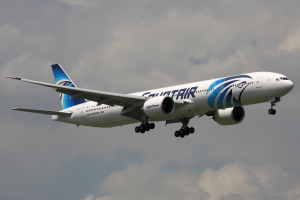Last Saturday, Russian Flight 9268 broke apart in the air and crashed in a remote location in Egypt’s Sinai Peninsula, reported CNN. Of the 224 passengers and crew on board, none survived.
Suspicion of terrorist involvement grew early in the week, due to statements from the Deputy Director for Aviation of the airline, Kogalymavia. Director Alexander Smirnov said to a press conference in Moscow, “[the] only reason that could explain the plane’s breaking up in the mid-air can be a certain impact, purely mechanical (and/or) physical impact on (the) flying vessel.” Though some translators advised CNN that the statement was vague and difficult to translate, other news outlets such as the Wall Street Journal interpreted Smirnov’s statement to mean that “only an impact on the plane in flight could have caused the tragedy.” According to CNN, Smirnov was quick to rule out technical failure of the aircraft, noting he had recently flew the plane himself and it was in “pristine” condition.
 The aircraft landed in pieces in Hasana, Egypt, which the New York Times reports to be a military zone closed to the public due to the presence of a local branch of ISIS. United States and European air-safety officials have warned in the past of the potential existence of anti-aircraft technology in the area, yet Russian aviation experts informed the New York Times that they believed the plane was flying high enough to avoid such dangers.
The aircraft landed in pieces in Hasana, Egypt, which the New York Times reports to be a military zone closed to the public due to the presence of a local branch of ISIS. United States and European air-safety officials have warned in the past of the potential existence of anti-aircraft technology in the area, yet Russian aviation experts informed the New York Times that they believed the plane was flying high enough to avoid such dangers.
Other aviation experts are concerned, with expert Les Abend reporting to CNN that the data showing the aircraft’s dramatic altitude changes and significant increase in ground speed disturbed him, yet he advised caution as the data is still preliminary. Peter Golez, a former managing director of US National Transportation Safety Board noted that terrorism had not been ruled out as of Monday, but there are multiple other factors to consider first.
While ISIS claimed responsibility for the crash on Twitter and other online venues, the New York Times reports Russian and Egyptian officials dismissing the claims, citing little to no evidence of a terrorist attack as well as ISIS possessing anti-aircraft weaponry. Further, the Russian Federal Air Transport Agency dismissed Smirnov’s ruling out of technical failure or pilot error in favor of an external factor, calling his comments “completely premature.”
Still, anonymous aviation experts reported to the Russian newspaper Kommersant that the damage to the plane “suggests explosive decompression to the fuselage.” The UK based news source, The Telegraph, stated that according to experts, this damage could be caused by some kind of on board explosion, stress cracks in the fuselage, or an external impact.
Nonetheless, the Egyptian Civil Aviation Minister Hossam Kamel urged those observing the unfolding events to avoid hasty conclusions, saying, “There was nothing abnormal before the plane crash…It suddenly disappeared from the radar,” according to CNN.
CNN reports Russian President
